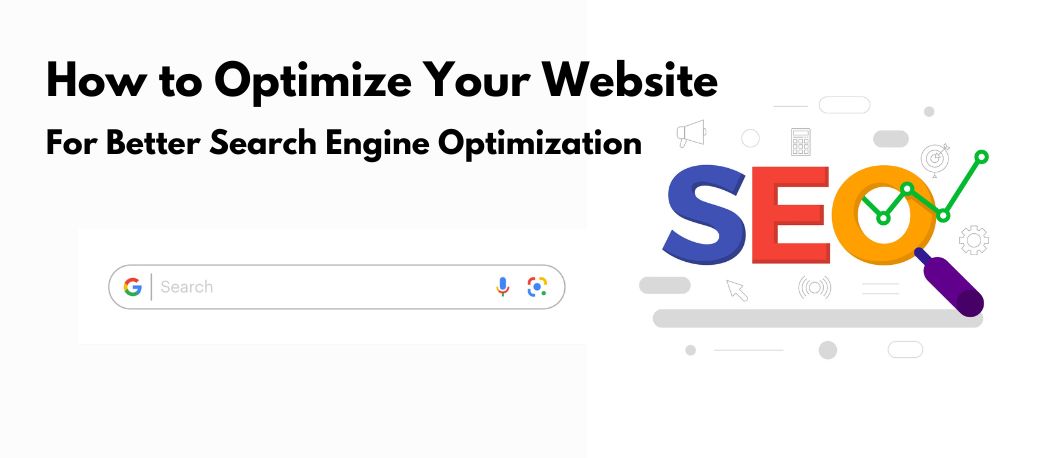When it comes to the success of your online business, search engine rankings play a critical role. In today’s digital world, most consumers turn to search engines like Google, Bing, and Yahoo to find the products and services they need. Therefore, if your website doesn’t appear on the first page of search engine results pages (SERPs), you’re losing out on potential business. In this blog, we’ll discuss the key steps you can take to optimize your website for better search engine rankings.

Research Keywords:
The first step towards optimizing your website for better search engine rankings is to identify relevant keywords and phrases. You can use keyword research tools like Google Keyword Planner, SEMrush, or Ahrefs to find popular and less competitive keywords related to your website’s products, services, or information. By incorporating these keywords throughout your website, you can improve its visibility in SERPs.
On-Page Optimization:
On-page optimization involves making individual pages of your website more search engine friendly. Here are some key on-page optimization strategies to follow:
- Use relevant keywords naturally throughout page titles, headings, meta descriptions, and URL structures.
- Create high-quality, original content that provides value to your visitors and encourages them to stay on your website longer.
- Use descriptive alt tags for images to make them more accessible to search engine crawlers.
- Optimize your website’s loading speed by compressing images, minifying CSS and JavaScript files, and utilizing caching techniques.
- Make sure your website is mobile-friendly, as mobile usability is a crucial ranking factor.

Technical Optimization:
Technical optimization involves ensuring that search engines can crawl and index your website efficiently. Here are some key technical optimization strategies to consider:
- Create a sitemap that helps search engines understand the structure of your website and index its pages effectively.
- Optimize your website’s robots.txt file to instruct search engines on what to crawl and what to exclude.
- Implement structured data markup (schema.org) to provide additional context about your website’s content, such as reviews, ratings, and pricing.
Off-Page Optimization:
Off-page optimization involves promoting your website to other websites and online platforms to build your website’s authority and credibility. Here are some key off-page optimization strategies to follow:
- Build high-quality backlinks from authoritative websites that link back to your website’s relevant pages.
- Engage with your audience on social media platforms to increase brand awareness and drive traffic back to your website.
- Utilize online review platforms like Yelp, TripAdvisor, or Google My Business to increase your website’s visibility and credibility.

Conclusion:
Optimizing your website for better search engine rankings requires implementing various strategies to improve its visibility and relevance in SERPs. By researching keywords, implementing on-page and technical optimization strategies, and following off-page optimization strategies, you can improve your website’s search engine rankings and drive more traffic and sales to your business. Remember, optimization is an ongoing process, and you should regularly monitor your website’s performance and adjust your strategy accordingly. For a free website analysis and more information on how to get your site ranked higher on Search Engines contact Spinning Web Media Solutions at (925) 219-6146 or you can contact us here.

